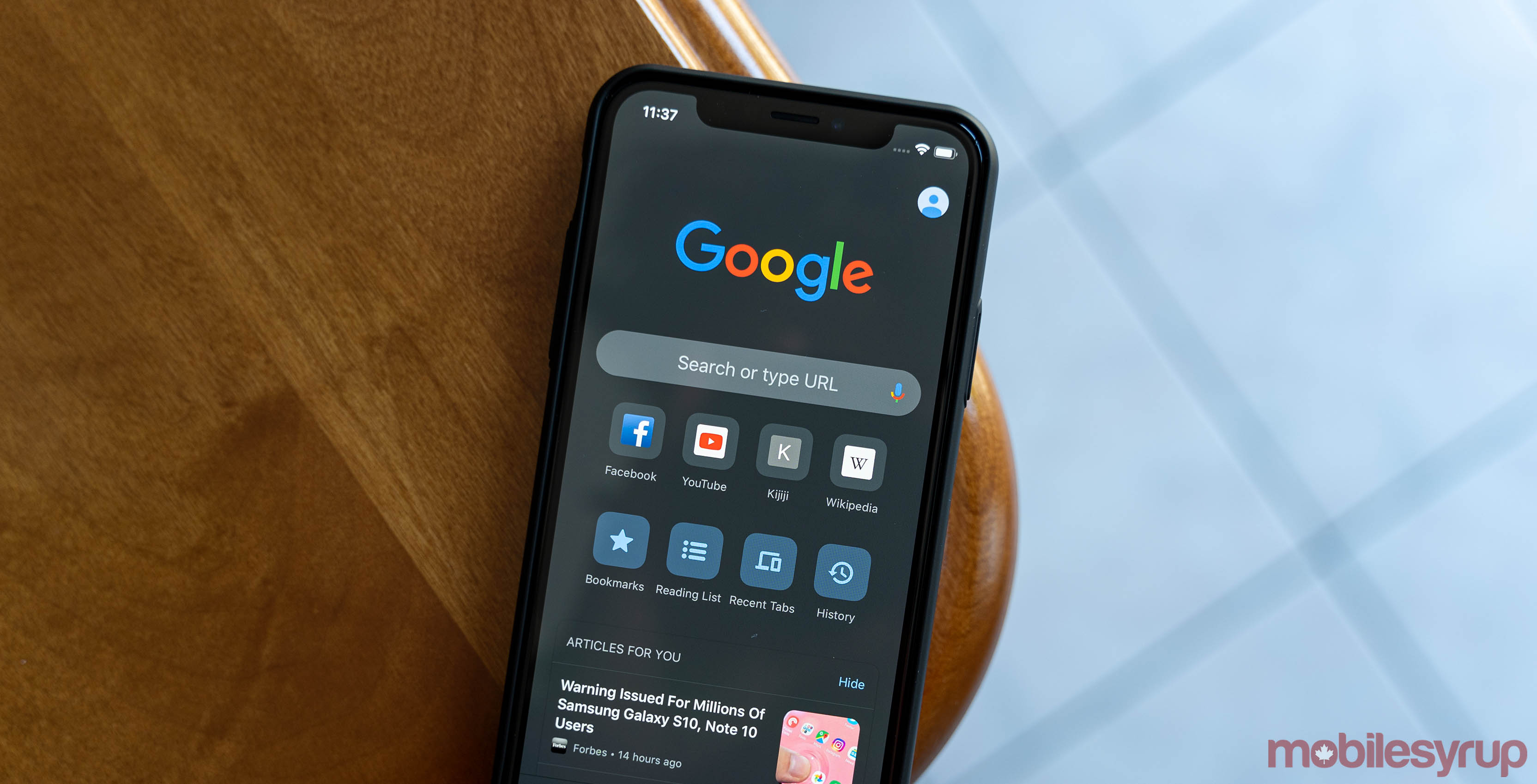
A proposed class-action lawsuit has been filed against Google for tracking users while they browse in Chrome’s Incognito mode.
Specifically, the lawsuit accuses Google of violating U.S. federal wiretapping laws by tracking users’ online activity, even in Incognito mode. Further, the complaint cites Google tools like Analytics, Ad Manager, smartphone and PC applications and website plugins, saying Google leverages them to monitor uses, even if they don’t click on any Google ads.
The lawsuit also says that “millions” of users who went online using Incognito mode since June 1st, 2016 have likely been affected.
The plaintiffs say that Google tracks and collects browsing data “no matter what safeguards” people use to protect themselves. Additionally, they argue that by tracking users in Incognito mode, Google intentionally deceives users into thinking they have control over the information they share with the company.
The lawsuit seeks $5 billion USD (roughly $6.76 billion CAD) in damages or at least $5,000 USD (about $6,758 CAD) per affected user for violations of the U.S. wiretap and California privacy laws.
In a statement to The New York Times, Jose Castaneda, a Google spokesperson, disputed the claims. You can read the statement in full below:
“Incognito mode in Chrome gives you the choice to browse the internet without your activity being saved to your browser or device. As we clearly state each time you open a new incognito tab, websites might be able to collect information about your browsing activity during your session.”
Is Incognito really that private?
It’s worth noting that Chrome does, in fact, warn users when they open an Incognito session in Chrome. When you open an Incognito tab, Chrome lists what it won’t save while you’re using Incognito and what websites can still see. That includes:
Chrome won’t save the following:
- Your browsing history
- Cookies and site data
- Information entered in forms
Your activity might still be visible to:
- Websites that you visit
- Your employer or school
- Your internet service provider
You can also read more about how Incognito mode works on Google’s support site.
Further, Chrome’s Incognito mode has long been the subject of privacy concern. In 2018, a report detailed how Google could de-anonymize collected data from Incognito browsing if users signed into their Google accounts after visiting a site with a Google tool like DoubleClick.
At the time, a Google spokesperson said that the company doesn’t de-anonymize data like that. However, the possibility for Google to do so remains a concern, even if it doesn’t.
More recently, Google had to fix a loophole in Chrome’s Incognito mode that allowed websites to determine if a user was browsing in Incognito mode. Web pages that use a paywall feature, such as a free article limit, tended to use it to prevent Incognito users from bypassing the cap.
However, in fixing the loophole, Google created more ways for websites to determine if someone was in Incognito.
Ultimately, this lawsuit is something to keep an eye on, but I’m not sure it has merit. It’s hard to claim that Google intentionally misled users when it clearly states the limits of the Incognito feature. However, that’s not to say that Google and Chrome’s privacy issues shouldn’t be investigated. The search giant has long used its apps, ad systems and more to track users’ browsing data. However, specifically targeting Incognito mode may not be the best way to go about it.
Source: Engadget


